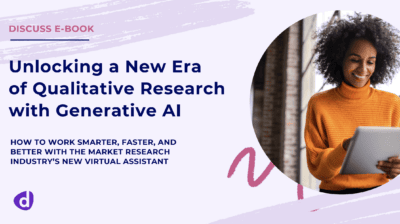Qualitative Research – Relevant in the era of Big Data?
Is Qualitative Research still relevant in the era of Big Data?
In this era of Big Data, decision making no longer relies on intuition or experience, but on data and analysis. Big data sets are often captured and aggregated from a wide pool of sources, both public and personal, and include the mundane like social media participation to the more sophisticated data sets like surveillance footage. Many business pundits profess that big data will lead to a smarter world driven by more efficient, consumer-centric companies, and better decisions guided by facts and analysis. However, faced with huge complex data — both structured and unstructured — many data analysts are grappling with questions of scale of research, while still coming to terms with the fact that data accumulation is continuing unabated.
Drawbacks of Big Data
The quest to draw meaningful insights from business data is nothing new, but of late, the sheer volume of data available has made traditional processing methods ineffective. As businesses become more inundated with data from various sources, making meaning from this sheer volume of data is an overwhelming task. In addition, data is tamed and interpreted using mathematical algorithms and models. Although these models may be useful in providing insight, they do have limits since they are just explanatory simplifications. Because of this simplicity, not all statistical inferences are correct or fair. And, it’s difficult to get insights about subtle trends and occurrences.
Role of Qualitative Research in the Age of Big Data
Data compartmentalization paired with qualitative research will show trends and behaviors that are ‘unseen’ by big-data data capture systems and models. Qualitative research, for instance observations and interviews, rely on capturing trends and themes then assigning them to specific categories. This comes in handy especially when dealing with limited unstructured data that may otherwise be ignored by the big data algorithms. Take for instance in a business setting, occurrences can be grouped into internal, controllable factors, such as compensation or conflict management, and external, limited control, such as employees leaving because of poor housing or schools. If a specific occurrence is exhibited by a majority of the employees, then qualitative research is best suited to illustrate this trend.
By capitalizing on the key benefits of big data of providing general insights about occurrences, the intrinsic benefits of qualitative research, and providing specific trends about specific occurrences, businesses can truly be smart.
Sign Up for our Newsletter
Related Articles

How to Facilitate Meaningful Insights: Strategies for Effective Focus Group Discussions
Conducting a worthwhile focus group requires a strong purpose and well-defined objectives. This isn’t an ordinary chat; it’s an organized…
Conducting a worthwhile focus group requires a strong purpose and well-defined objectives. This isn’t an ordinary chat; it’s an organized…

How to Optimize Engagement with a Virtual Focus Group: Strategies and Tips
Creating successful engagement in virtual focus groups starts with proper planning. This involves everything from the setup of your digital…
Creating successful engagement in virtual focus groups starts with proper planning. This involves everything from the setup of your digital…

Maximize the number of research projects completed by year’s end: Yes, it can be done
Ask most agencies managing enterprise-level market research (MRX) projects, and they’ll tell you they have a love/hate relationship with their…
Ask most agencies managing enterprise-level market research (MRX) projects, and they’ll tell you they have a love/hate relationship with their…


